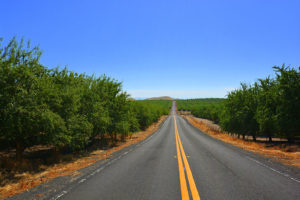
Like any journalist in these days of escalating water prices amid growing scarcity, Deborah Rybak maintains a keen interest in agriculture. So late last December, when she learned 56,000 acres of farmland had changed hands on the island of Maui, her reporter’s radar went on full alert. Rybak writes for Maui Time, the island’s leading news journal.
The selling price alone—$262 million—was enough to pique her interest. Anyone with that kind of money would automatically have plenty of clout and would know, as Rybak knows, that Big Ag and water always intersect at nodes of political power.
She got even more intrigued when she tried learning about the buyers, who called themselves “Mahi Pono.” The loose translation is “to grow responsibly or ethically.” Early on, even the man who facilitated the sale couldn’t tell her much about the buyers. That bothered her, because the middleman was former Lieutenant Governor of Hawaii, Shan Tsutsui.
Even though he’d worked on the sale for six months, Tsutsui said all he knew was the buyer was named Pomona Farming. He couldn’t tell Rybak who the principals were.
By now Rybak was on full alert and it didn’t take her long to learn that Mahi Pono was only about a month old when it bought Alexander and Baldwin’s 56,000 acres. At 21 months, Pomona Farming was older, but its principal owners, Ryan Paton, Kirk Hoiberg and William Hooper, had been buying farmland for a least a decade. They were known to people who follow agriculture in the San Joaquin Valley as Trinitas Partners.
Trinitas came to the small town of Oakdale in 2008 with much of the same fanfare as they’ve generated with their arrival in Maui. Though the three Bay Area partners sold themselves as inspired by scripture and dedicated to enlightened farming practices, it didn’t help their case when most of the acreage Trinitas bought turned out to be former pasture land that was dependent on groundwater, especially after Trinitas planted water-guzzling almonds.

Trinitas had surreptitiously bought up the pasture land at bargain prices, then immediately increased its value by converting it to almond orchards, which were annexed into the Oakdale Irrigation District (OID) in 2013. Even after the annexation, Trinitas had only second tier water rights, and was thus primarily dependent on groundwater. Nonetheless, the land appreciated in value tremendously.
Trinitas took more hits to its reputation when it settled a couple of lawsuits brought by landowners who felt the Bay Area investors had misrepresented their intentions while buying out local farmers and cattle ranchers.
Other local growers who had waited years to be annexed into the district were incensed that Trinitas had skipped to the head of the line. They accused the investment group of favoring speculation over farming and predicted Trinitas would abandon the region when the price was right.
That prediction may or may not have come true recently, when Trinitas sold shares of its Oakdale properties to a Canadian investment firm. Some observers noted that the new buyer hasn’t paid off the annexation fees Trinitas financed at three percent, as required by the original contract with OID.
On the other hand, it’s possible that the new buyer is actually just another arm of the Trinitas empire, which, as Deborah Rybak has learned, features a bewildering array of LLCs and branches. In that case, Trinitas would have sold to itself, or to “Pomona Farming,” as it says in a letter of explanation to OID.

Whatever the case, the real concern for people in Maui, and anywhere else Big Ag gets involved in big sales, is water. More and more exchanges of farmland these days are about acquiring water rights and more and more people are wakening to the reality that whoever controls water rights controls the political process, and vice-versa. It’s a double feedback loop where water rights lead to power and power confers water rights.
And as of June 26, it appeared Trinitas, aka Pomona Farming, aka “Mahi Pono,” had reached an impasse with Maui County’s Board of Water Supply over water rights to its new land holdings. Problems between the board and Mahi Pono date back to ongoing controversies with Alexander and Baldwin (A&B), the original landowners.
The key question for members of the water board, and affected residents in general, is whether Mahi Pono will allow enough water to pass through its farming operation to serve “Upcountry” Maui. Norman Franco, a member on the Board of Water Supply said,
“I think people are tired of getting held hostage by A&B and now Mahi Pono,” when commenting on the impasse.
Franco was incensed because Mahi Pono has gone incommunicado despite requests from the Board of Water Supply and local media to explain its plans for utilizing the A&B water rights which came with the property. The water rights have been subject to controversy, mostly because they’ve been on a permanent “temporary” status which many interested parties believe gives the landowner too much control over the water without enough responsibility to maintain infrastructure for delivery. The water system is managed by East Maui Irrigation, which was part of the A&B buyout.
Mahi Pono went silent after a bill to maintain the status quo on its water rights failed.

Given what seems like inordinate power over water deliveries, Mahi Pono of late seems to be justifying Deborah Rybak’s early concerns about the buyout. Just a few days ago, there were reports that OID water attorney Tim O’Laughlin had become involved in the Mahi Pono controversy. Many Oakdale farmers believe O’Laughlin was a major player in giving Trinitas/Pomona Farming/Mahi Pono what they believe was sweetheart deal when Trinitas was annexed into the district.
At bottom, the Maui land purchase may in fact be a water purchase. As Mark Arax has documented so clearly in The Dreamt Land, Big Ag is also Big Water, and isn’t averse to buying and selling water for profit. The lesson is that if you are in or near a farming community, water is a commodity, it’s for sale, and a buyer is coming soon to a farm near you.

Maui just had a mega brush fire on Ag land. Could this be land mentioned in the article?
Bruce: Some 12,000 acres of Mahi Pono land burned.
Mr. Caine, could you please define “Big Ag”? In your many articles demonizing agriculture, you seem to make no distinction between different types of farming operations. What confuses me is who, by your definition, is “Big Ag” and who is a legitimate farmer (if there are any, by your own estimation)?
There are, as you know, hundreds of hard-working, honest, family-owned and family-operated farming businesses in the Central Valley. They aren’t owned by insurance companies or hedge funds or pension conglomerates. They aren’t managed by hired farmers. They are owned and managed by families who have, in most cases, owned the land they farm on for generations.
Maybe you just hate agriculture in general and feel, like many liberals from the urban centers that farmers are guilty of innumerable crimes–from using pesticides to exporting water to exploiting farm workers to creating dust during harvest to burning carbon with their tractors to raising cows that fart too much. If that’s your stance, just say so.
But in the same breath, you also need to address the fact that–like it or not–the Valley’s economy would utterly collapse without agriculture to supply jobs and tax revenue for our Valley counties and cities.
We get that you hate Big Ag. How do you feel about agriculture in general?
why didn’t the water district buy the land and resell when they owned the water ?
The water comes from East Maui streams through an elaborate 100+ year old ditch system. The water is being STOLEN from the taro farmers (Hawaiians)
Since Mahi Pono got a half interest in the system (EMI) for a quarter $billion, it would have taken 1/2 Maui County’s annual budget to purchase the water delivery (theft) system
Additionally, Hawaii state Constitution says water is a public trust and no one “owns” the water on their land.
Which is why Mahi Pono has to get water allotment through the Water Commission.
Corruption is rampant at the water board.
Mr. Barton: At times I question your sincerity. Surely you would agree that holdings over 100,000 acres is Big Ag. How about 50 or 60,000 acres? Big Ag treats water and land as fungible commodities to be bought and sold. Big Ag owners live far off the property and worry less about sustainable agriculture than the bottom line. Big Ag abuses the Public Trust. Saying I hate farming because I expose the abuses of Big Ag is like saying I hate people because I dislike bullies. Surely we can agree on the basic elements of fair play, Mr. Barton. Or can we? For a quick review of the history of Big Ag in the San Joaquin Valley, I recommend David Igler’s Industrial Cowboys, and the two works of genius by Mark Arax: The King of California and The Dreamt Land. Resnick, Boswell, Vidovich—that’s Big Ag. And there are more. In general, like Thomas Jefferson, I value agriculture not just for the necessary role it plays in our lives, but for the kind of people who practice it: honest, strong, independent and community-oriented. There are always exceptions.
Thanks, Mr. Caine, for your explanation. Once again, I will say that I am no apologist for those you define as Big Ag. My complaint has been that–while you continue to vilify the mega-ag companies–you make no distinction (until now) between the Stewart Resnicks of the world and the generational farming families like ours who have been making a living at farming without exploiting our natural resources for more than a century. When your many articles decrying the water grab by Big Ag appear, they say nothing to address the importance of agriculture to the Valley’s economy. You can’t paint all farmers with the same broad brush, and in your explanation, I am finally able to see that you do make a distinction between the mega-farm companies and family farmers. Thank you.
Thank you Mr. Barton. I probably assumed too much in thinking people are familiar with my long history of advocating farmland preservation locally. But we really need to think hard about the future of local farming when the last great aquifer in the San Joaquin Valley is being drained and we continue selling water to buyers down south where virtually no one thinks farming on a massive scale is sustainable. Corporate farming on the scale of hundreds of thousands of acres is vastly different from local farming in Stanislaus County.
How do you treat humans in the community, Eric Caine?
Mr. Barton, To question whether or not someone “hates” agriculture in general is akin to shooting oneself in the foot before taking a walk; it’s idiotic.. We all need farmers to raise livestock, grow fruits, vegetables, grains, nuts as well as to produce dairy products, etc all of which sustains us as a species. As a Stanislaus County resident (we are now at seven generations) it doesn’t take a rocket scientist to tell a large scale family farmer who loves the land and is a responsible member of his/her community from a conglomerate of investors who care little for the soil that’s being tilled, the wells that are running dry (often leading to collapsed aquifers) much less the people residing in the areas they’ve bought up as the way you can recognize many “Big Ag” operations is that none of them LIVE here, but are sitting somewhere behind a desk waiting for either tax breaks, appreciation (so they can sell for a profit) or, in some cases, even utilizing any losses accrued to offset some major gains elsewhere and all of this often negatively impacts small, medium and large family or co=op farming. enterprises and their local towns and cities I find your comment specious in its self-righteous tone and telling in your use of words such as “demonizing” and “hate” (which you used at least twice) and feel that you are using this comment section because you have some kind of ax to grind which veers from the subject matter of the article and strikes me as more like someone wanting to needlessly pick a fight.
I am not a fan of “big” anything…. be it absentee investor farming, AT&T monopolies, Big Pharma, you name it… Big has often not proven to be better, but it has been shown to be thoughtlessly impersonal and in fact, has provably made things worse in many instances. so I believe if you re-read your statement, you may see why, to many of us, it simply sounds ridiculous to allege that someone “hates agriculture in general” simply because they’ve pointed out the risks inherent in allowing a few well-lobbied folk in various local government positions to make deals with Big Anything!
Agriculture and the business of farming or ranching includes conservation practices.
Conservation can be mandated or practiced voluntarily for the benefit of the natural resources, the land owner and the larger community. My thinking is that A and B had a responsibility to practice the simple soil conservation practice of clearing the former sugar land of trash and planting a ground cover when the last sugar cane was harvested, the land sold to a California company and the soil was exposed to the elements.
A and B, in my view, has been negligent. The negligence
has caused damage to the community. It seems reasonable that A and B be mandated to cure this damage, especially considering the revenue they enjoyed from the sugar land sale to the company from California.
Responding to the discussion about farm ownership and operation, I believe that non-farmers, say insurance companies and land developers, are currently engaged in what is certainly defined as agriculture. However, I would have to recognize these non-farmer entities as more interested in return on investment in real estate and mineral rights (water) than they are in the production of food and the rural life style.
Whether Maui Pono is farming or just out for a nice return on their investment is a worthwhile conversation. However, it seems to me that the truth is evident.
To my way of thinking Maui must decide what is the best use of the water for the community. Unlike in many states on the mainland, the law in Hawaii says the water belongs to the community. That community is made up of the resident households, the future generations, the environment and all the things that make up what is called Maui.
Maui’s two big legacy products, Sugar and Pineapple, were part of Hawaii for a long time. The companies that owned and operated those businesses had their day, about a century actually, in Hawaii agriculture and the almost unbridled use of the water. The benefits and costs of those two crops as part of Maui can be debated and should be discussed.
It is not a given that those two big-field crops be replaced by another big field crop, such as potatoes. It is a given that the soil conservation practices be recognized as agriculture and mandated.
As an ex-resident of Kokomo and three year employee of the University of Hawaii, I am shocked and bewildered that the former sugar land is being allowed to burn and blow. Would not a Maui judge mandate that this be remedied immediately? Would it also be reasonable that A and B or the current California owner of the sugar land pay the bill, which would be small compared to A and B receipts for the land.
On the use of Maui’s limited water resources, it seems to me that priorities must be set and followed. It goes without saying that the top priority should be the children of Maui, their families and other permanent residents of the County. That use would include not only household consumption but the conservation of the environment, perhaps even restoration of streams diverted for sugar cane irrigation.
Limits must be set on the uses. Those limits bring up the scale of tourism in Maui County. It is not uncommon today for popular destinations, especially natural beauties like Maui County, be protected by quotas, permits and fees, all of which are optimized to conserve the natural beauty of the destination, enrich the lives of its residents and improve the experience of its visitors.
A friend on Maui recently told me the water offshore of Kaanapali has improved after only a short period without the annual rate of 3,000,000 visitors. The Water Board is dealing with fresh water. But the Board might consider a fresh water use rate for tourism that is limited to a reasonable level.
In closing I wish strength for the Maui Water Board.
… [Trackback]
[…] Informations on that Topic: thevalleycitizen.com/trinitas-partners-brings-its-water-hammer-to-maui/ […]